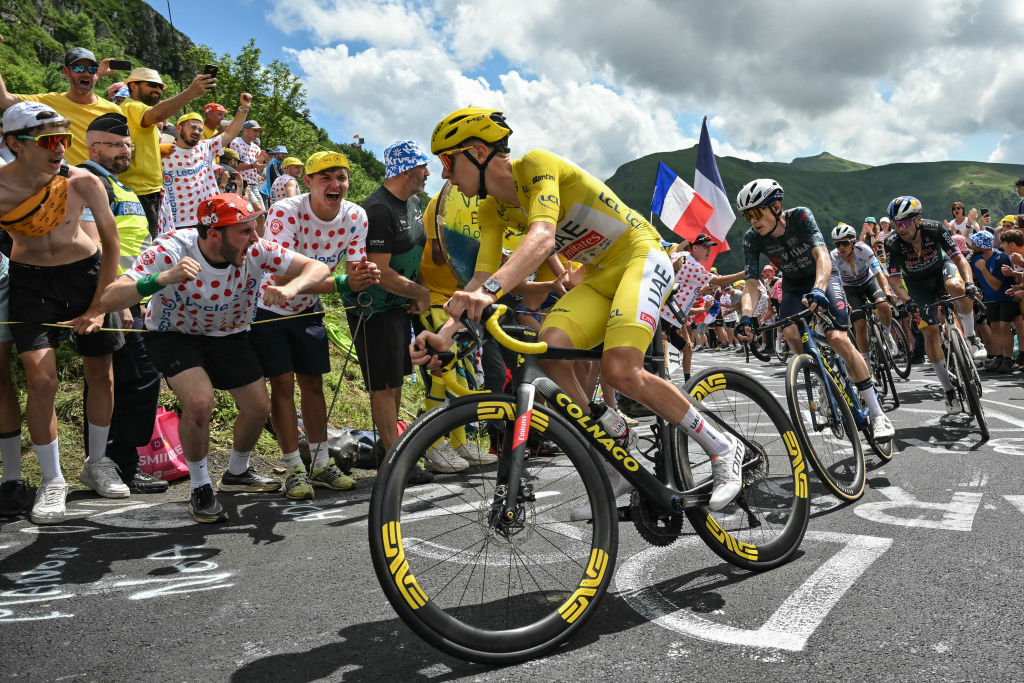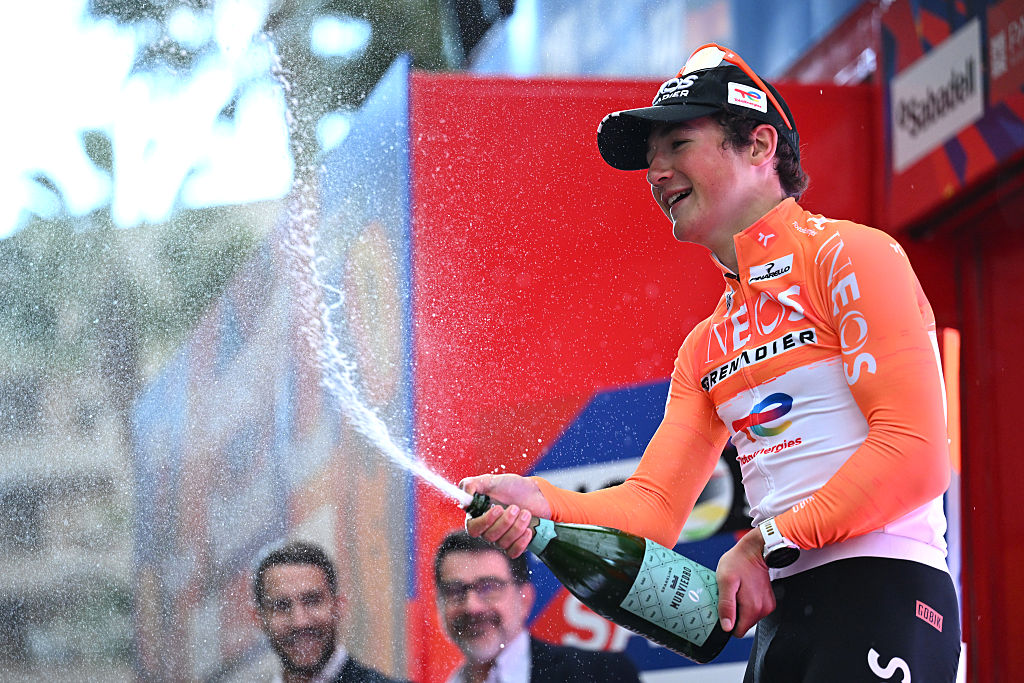The 5km rule returns at the Tour de France, but bonus second sprints are out
Several rules and regulations get tweaked ahead of this year's Tour

The latest race content, interviews, features, reviews and expert buying guides, direct to your inbox!
You are now subscribed
Your newsletter sign-up was successful
The rules and regulations of the Tour de France are a fairly dry subject but they're essential to the function of the biggest race in the world, from the time cut calculations to how the prize money is allocated, and, of course, the jerseys and competitions for which the 184 riders are battling.
There are more rules beyond those, however, with some updated for this year's Tour, which could end up having a major effect on the race outcome.
First up, there's a rule alteration, implemented for the first time during stage 3 of last year's Tour, which should improve safety during hectic sprint finishes. That alteration involves extending the usual '3km rule', which awards any riders falling victim to a crash or mechanical within the final 3km of flatter stages the same time of the group they were with.
That rule means riders with no interest in sprinting can avoid the chaos of sprint finishes and also reduces the prospect of bad luck having an outsize effect on the general classification. The extended 3km rule will again be in place at this year's race, the UCI announced on Thursday.
Seven stages of this year's Tour will see the 3km rule extended to 5km, including the nailed-on sprint days - stages 1, 3, 9, and 15 in Lille, Dunkerque, Châteauroux, and Carcassonne, respectively. Three other stages – 4, 17, and 21 to Laval, Valence, and the visit to Montmartre in Paris – also see the new 5km rule implemented.
"In the lead up to the Tour de France (5-27 July), the UCI announces the stages which will benefit from an extension of the so-called 'three-kilometre rule'," the UCI stated.
"The aim of this measure is to take account of the increasing number of traffic calming devices (e.g. speed bumps, curb extensions, road narrowings) – sources of danger for the peloton – within an ever-greater radius of the race finish sites in urban centres.
The latest race content, interviews, features, reviews and expert buying guides, direct to your inbox!
"Extending the zone in which the rule applies reduces the pressure on riders during the phase of the race leading up to the final sprint."
The rule could save some GC contenders from losing precious time should they get caught up in incidents outside of their control inside the final 5km of those stages.
However, while time might be saved there, it could be lost elsewhere as the Tour has done away with the bonus second sprints that featured late on during four stages – 2, 4, 11, and 17 – last year. The usual 10, 6, and 4 bonus seconds at stage finishes will remain.
The sprints, which awarded 8, 5, and 2 seconds, had little effect on the GC last July, with race winner Tadej Pogačar picking up 16 seconds to Jonas Vingegaard's 10 and Remco Evenepoel's 4.
In the end, the top GC men were separated by minutes rather than seconds, and so the four sprints didn't make a difference. As a result, they've been done away with for this year's race.
If the Tour delivers a closer competition this time around, maybe we'll look back on the coming three weeks and ponder whether those bonuses might have decided the battle for the maillot jaune.
The Tour de France is the biggest race in cycling, and a Cyclingnews subscription offers you unlimited access to our unrivalled coverage. Get all the breaking news and analysis from our team on the ground in France, plus the latest pro tech, live race reports, and a daily subscriber-only newsletter with exclusive insight into the action. Find out more.

Dani Ostanek is Senior News Writer at Cyclingnews, having joined in 2017 as a freelance contributor, later being hired full-time. Her favourite races include Strade Bianche, the Tour de France Femmes, Paris-Roubaix, and Tro-Bro Léon.
You must confirm your public display name before commenting
Please logout and then login again, you will then be prompted to enter your display name.
